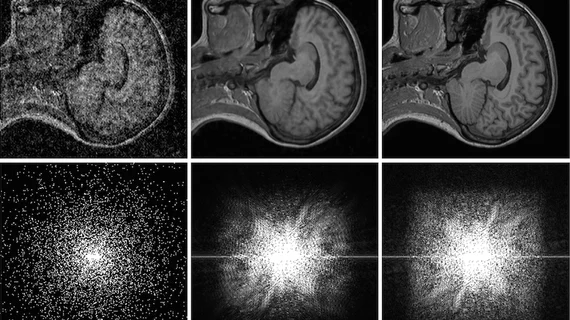AI software could fix 'grainy,' low-res medical images
An AI software developed by researchers from NVIDIA, Aalto University in Finland and MIT may be able to fix low-resolution, grainy or pixelated medical images without previously observing examples of noise-free images.
Using NVIDIA Tesla P100 GPUs with the cuDNN-accelerated TensorFlow deep learning framework, the team trained its system on 50,000 images in the ImageNet validation set, according to a NVIDIA press release.
The deep learning-based software can remove artifacts, noise and grain to enhance images into clean data without previously being shown examples of noise-free images.
“There are several real-world situations where obtaining clean training data is difficult: low-light photography (e.g., astronomical imaging), physically-based rendering, and MRI,” wrote lead author Jaakko Lehtinen, PhD, of NVIDIA, and colleagues in their research presented at the 2018 International Conference on Machine Learning in Stockholm from July 10 to July 15.
“Our proof-of-concept demonstrations point the way to significant potential benefits in these applications by removing the need for potentially strenuous collection of clean data. Of course, there is no free lunch—we cannot learn to pick up features that are not there in the input data—but this applies equally to training with clean targets.”

